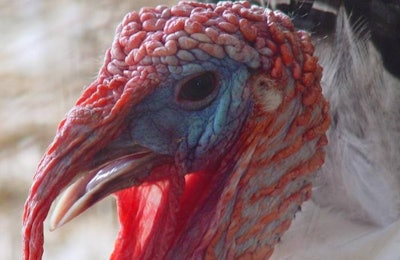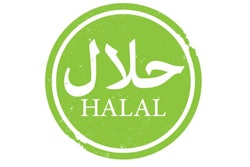
Clostridial dermatitis is a major disease that affects commercial turkeys, particularly the birds that have reached market age. When turkeys are infected with the disease, the mortality is normally rapid and approaches 100% of the infected birds.
But there are prevention and control measures that can and should be done, explained Danielle Graham, a third-year PhD student and program associate at the University of Arkansas.
Graham, speaking during the Midwest Poultry Federation (MPF) Virtual Convention on May 18, said the clostridial dermatitis prevention and control methods should be carried out both in the birds, and in their environments.
Prevention and control through the turkeys’ environment
“Within the environment, it is crucial to control the load of the clostridium septicum spores,” explained Graham.
Any carcasses from birds that have been stricken by dermatitis need to be promptly removed from the barn. The litter that may have been contaminated by affected turkeys should also be removed, she said.
Additionally, “a decent level of biosecurity” needs to be followed, said Graham.
Prevention and control through medicine
The most effective way to treat turkeys for clostridial dermatitis is through the use of antibiotics, with penicillin being proven to be the most efficacious, said Graham.
Antibiotic alternatives such as probiotics have also been tested, as have experimental vaccines, but they have not been found to be as effective as the antibiotics.
She noted that inactivated vaccines have been efficacious in other species like cattle and sheep, but she cautions that such vaccines can be expensive for the turkey industry, because multiple doses are required, and that means handling the birds frequently.
Graham’s session was titled, “Turkey dermatitis/cellulitis: Where are we headed.” The MPF Virtual Convention continues through May 21. The virtual convention offers educational tracks relevant to turkeys, broilers, layers and the poultry processing sector.


















